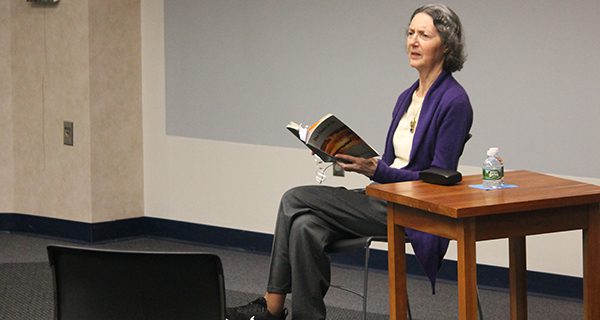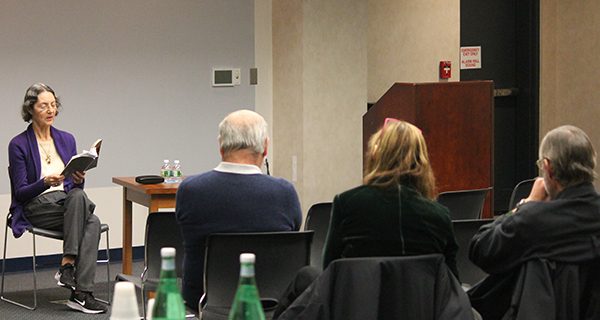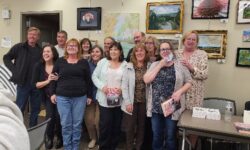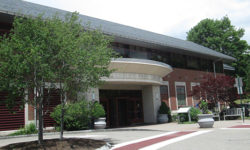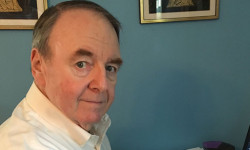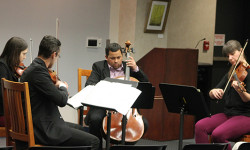By James Kinneen
Hometown Weekly Reporter
On Thursday night, February 14, the Wellesley Library hosted former Brandeis professor, author of twelve nonfiction books, and poet Marguerite Bouvard, who read from her new book of poetry, “The Flame of Life.” There were many different subjects broached in the works she read. However, it was the plight of migrants and refugees that made up the majority of her content.
Bouvard dedicated the book to Lena Hussain, a Syrian refugee she met while at Brandeis. Hussain had dealt with incredible hardships in her life, including being captured by Isis, an incident which led to her having nightmares, even while in the United States. Hussain lives in the USA now, but is struggling to get her family into the country because of the stricter new immigration laws the nation has adopted. Further, she has struggled financially, despite her education.
“I don’t think people know what refugees go through,” Bouvard explained. “People think of refugees as having done low-paying jobs, but Lena has two masters degrees.” Later, Bouvard would declare: “We’re treating Muslims the way Germans treated Jews, I don’t know if you realize that,” before explaining how few people are aware of the deep connections that exist between Islam, Christianity and Judaism.
Bouvard also spoke of the issues the country is having with immigration on the southern border. Before she read her poem, “The Lexicons That Divide Us,” she told the crowd: “We’ve put 50,000 people in prison, and many of them are children, little children.” She then once again noted that the nation has changed when it comes to how many people it allows into the country as refugees.
“Here’s some more info you might not want to know. We used to take around 40,000 refugees a year, and now it’s like 20,000, if we’re lucky.”
But not every poem was about the dire conditions of the world’s politics. Bouvard led with a poem about a bat that had gotten into the once-rural French home she lived in, though she was quick to point out “the bat was as big as a bumblebee.”
And, trying to lighten the mood with the final poem she would read, Marguerite Bouvard read a fun story about how bad her sense of direction is.
“I have no inner compass,” she explained. “I could get lost within a block. This poem is about getting lost with my husband in London.”
While the story recounted her husband playfully teasing her about her dependence on possibly fleeting or transient markers, like window displays and a parked motorcycle, for directions (at one point her husband asks “what if the motorcycle were gone?”), a woman in the crowd used the metaphor to assure Bouvard that in life, she was doing what was right.
“Your true inner compass is pointing towards good” the woman explained. “You’re not lost.”





